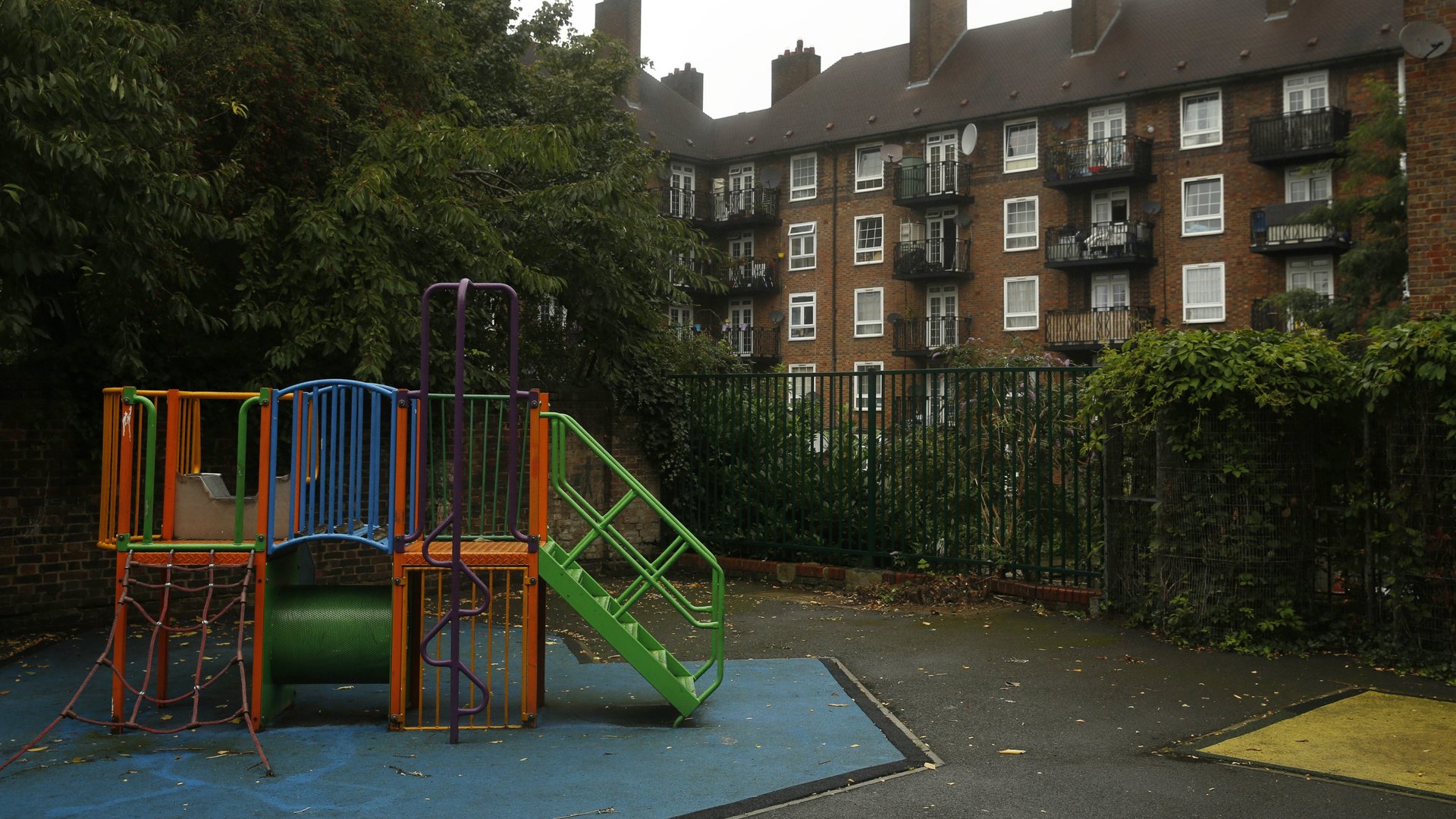A segregated playground is igniting outrage over inequality in Britain
Henley Homes, a property developer, markets Baylis Old School, their 149-home London development on the site of a former school, as “an education in living well.”


Henley Homes, a property developer, markets Baylis Old School, their 149-home London development on the site of a former school, as “an education in living well.”
It’s turning out to be an education in inequality in modern-day Britain.
The development, completed in 2016, has a large green play space for children belonging to well-off families in the development. But kids who live in the “affordable” section of the development aren’t allowed to come play. (UK developments typically have to allot a certain portion of their projects to affordable housing because of a massive shortage in London.)
According to the Guardian, local planning authorities approved the project with shared access for all residents. But after the development won approval, Henley appears to have changed its strategy, restricting use of the larger green space and creating a hedge to wall it off. A smaller strip of play space is available for the poorer residents.
“They’re segregating the children,” Louise Whitley, a private owner whose kids play with children from the affordable-housing section, told the Guardian. “We bought a flat here because it was marketed as family-friendly. But now our children’s friends look down from their windows and can’t come and join us.”
Henley marketed the development in 2016 as inclusive and family-friendly, saying the “common areas are there for the use of all the residents.”
Politicians have lambasted the two-tiered system, calling on local councils to clamp down on developers and on the council which approved the project to intervene. The Children’s Commissioner for England called the practice “dreadful,” and housing secretary James Brokenshire tweeted: “Kids being excluded from enjoying a play area on the same development because they live in social housing is outrageous.”
Henley originally argued that because it had sold ownership of the social housing area in 2015, it was not responsible for the division between kids of different classes. The social housing unit, called Wren Mews, is managed by one group, while the rest of the development is owned by Henley and operated by Warwick Estates.
Now Henley has said it will take action. In a statement, CEO Tariq Usmani said he was “acutely aware of what social exclusion actually means.” “I will be leading the way forward in engaging with all relevant stakeholders to ensure a workable solution can be put in place as soon as practically possible,” he said.
Henley did not respond to inquiries as to why it changed its plans.
Lambeth Council’s planning representative told the BBC that the set-up was “completely unacceptable” and not in the original planning application.
Sian Berry, the leader of the Green Party who has been active in trying to ban “poor playgrounds,” tweeted yesterday that there were plenty of blueprints available to avoid social exclusion, citing Camden, a borough which calls for all play spaces to be “inclusive.”
Dinah Borat, an architect who recently authored a report on designing child-friendly spaces, told BBC Radio London: “For children to have to play in a segregated way is entirely unnatural for them and it sends a message to them that they’re lesser human beings.”
Borat conducted a nine-month-long study on a public housing space called De Beauvoir Estate in order to understand how to better reflect the needs and opinions of children in urban design. She concluded a key goal must be to address spatial, gender and age inequalities. “Children are often at the bottom of the hierarchy in regard to claims on use of public space,” she noted in the report.
Especially poor ones.